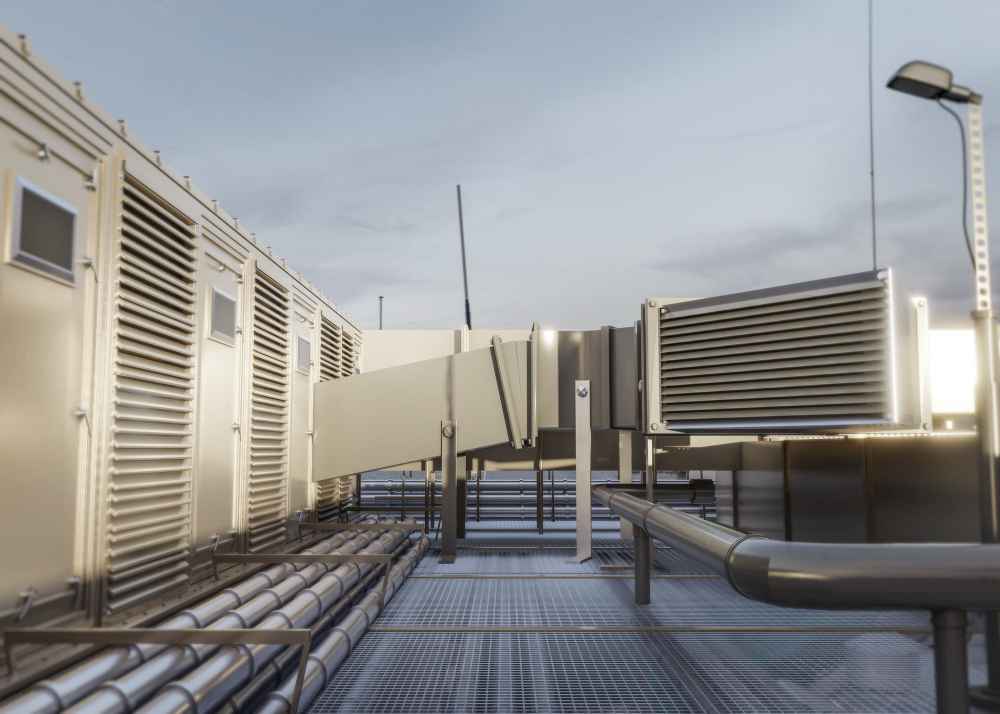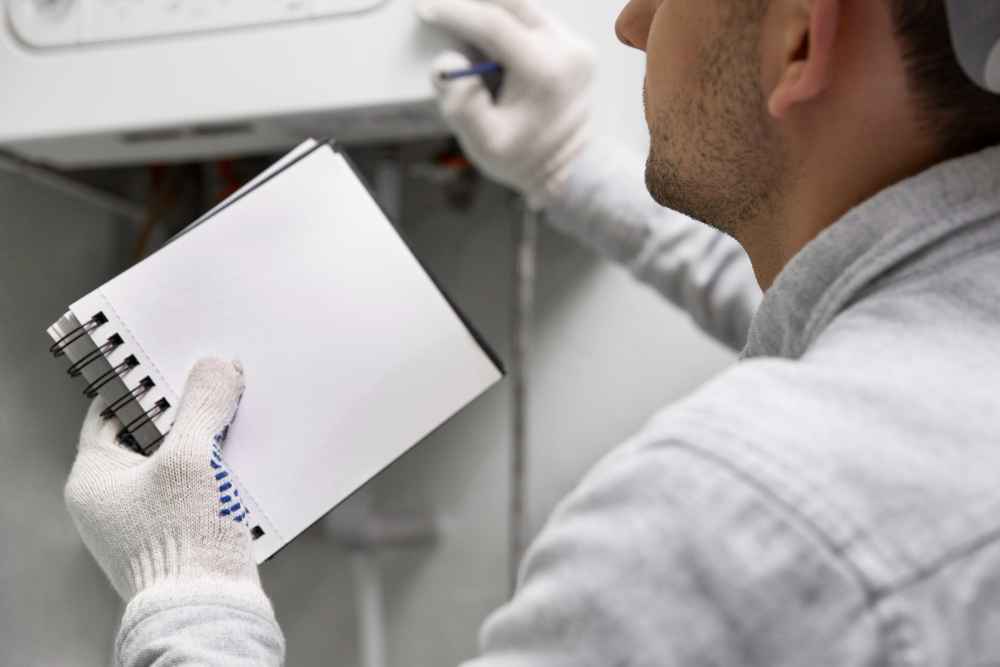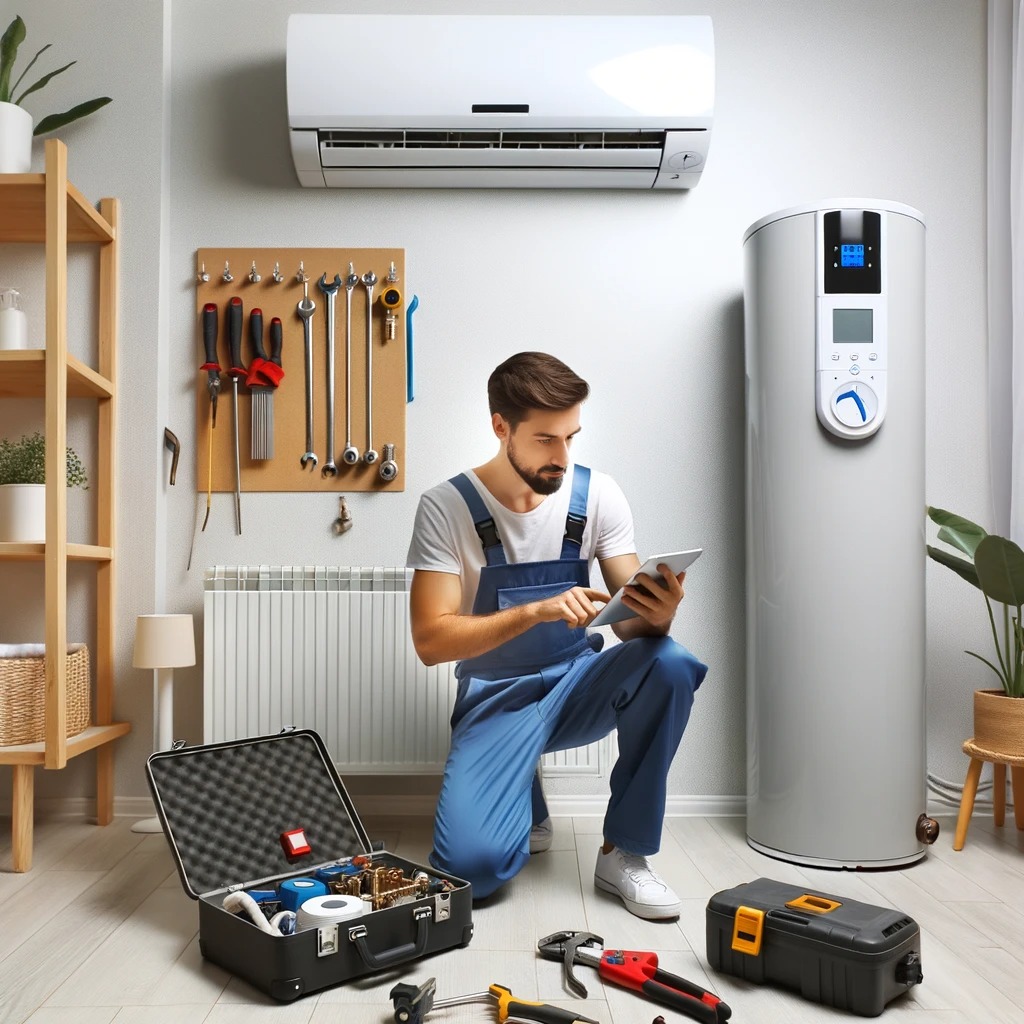“HVAC”, the acronym sounds quite catchy, right? It intrigues anyone who hears it the first time. A while later, you might start wondering what industry is HVAC, afterall? What does it entail and why do you keep it coming up so often? Well, we are here to shed light on exactly that!
So what industry is HVAC? The HVAC, or heating, ventilation and air conditioning, industry is an essential one that guarantees efficient air quality, comfort and safety in a variety of settings, from residential spaces to commercial buildings and industrial facilities. This diverse business is essential in both hot and cold areas because it plays a critical role in ensuring appropriate temperatures and air circulation regardless of the outside weather.

Using heating and cooling systems to control interior temperature is one of the HVAC industry’s main responsibilities. HVAC systems work diligently to maintain indoor surroundings at suitable temperatures, improving the quality of life for inhabitants, in both sweltering summer days and frigid winter nights. This aspect of the sector emphasizes how important it is to contemporary living standards.
Furthermore, ventilation is yet another important issue that the HVAC sector handles. By providing fresh outdoor air and eliminating pollutants, odors and excess moisture, proper ventilation is crucial for sustaining interior air quality. In addition to making indoor environments healthier, efficient ventilation also helps keep dangerous pollutants from accumulating, which enhances general wellbeing. The HVAC sector works in industrial environments in addition to homes and businesses.
Specific needs, like preserving the integrity of delicate materials, guaranteeing worker safety and maintaining ideal temperatures for manufacturing operations, are taken into account when designing industrial HVAC systems. HVAC systems are essential to maintaining quality standards in sectors like electronics and pharmaceuticals where accuracy is critical.
Other than that, the HVAC industry encompasses a wide range of products and services, including heating units, air conditioners, ventilation systems, ductwork, thermostats and insulation materials. It can be anything like installation and maintenance or repair and replacement, HVAC professionals offer comprehensive solutions to meet the diverse needs of their clients.
Energy efficiency, sustainability and technology improvements are some of the issues that impact the HVAC business in addition to its technical components. The development of energy efficient HVAC systems that maximize performance while reducing carbon footprint is receiving more attention due to growing concerns about energy usage and its impact on the environment.Innovations such as smart
thermostats, variable refrigerant flow systems and geothermal heating are reshaping the structure of the industry, driving progress towards more sustainable practices.

Despite its significance, the HVAC industry faces challenges such as skilled labor shortages, regulatory compliance and economic fluctuations. One of the biggest obstacles facing businesses trying to keep up with the growing demand for HVAC services is the lack of qualified specialists. The operations of the business are further complicated by the strict requirements pertaining to energy efficiency and refrigerant usage, which necessitate ongoing adaptation and compliance procedures.
The HVAC sector plays a vital role in contemporary infrastructure, providing the heating, ventilation and air conditioning systems necessary to preserve comfort, well-being and efficiency in diverse environments. HVAC systems are essential for maintaining ideal interior conditions in both residential and commercial buildings. The industry’s significance will only increase as it develops further, propelled by technology advancements and the need to be sustainable, solidifying its place as a fundamental aspect of contemporary life.
What Industry Is HVAC With Regard To The Residential Sector?
“What industry is HVAC?” This question strikes a deep chord, particularly in light of its critical significance in the residential market. HVAC stands for heating, ventilation and air conditioning. It is an essential component of contemporary living, guaranteeing people’s health, comfort and well being in houses all over the world.
Let’s start by discussing “what industry is HVAC” in terms of residential settings. HVAC systems are the silent defenders of homes, working nonstop to keep inside temperatures at ideal levels regardless of the outside weather. It could be chilly winters or scorching summers, these systems make sure that residents are comfortable all year long, creating an atmosphere that is ideal for rest, work and family time.
In the residential sector, HVAC is important for more than just comfort, it’s important for health and safety. HVAC systems enable proper ventilation, which is essential for preserving indoor air quality by efficiently eliminating allergens, pollutants and excess moisture. This is especially important to stop the spread of airborne infections and for people who have allergies or respiratory problems. HVAC systems essentially serve as the first line of defense against indoor air pollution, enabling residents to live in healthier environments.
Furthermore, what industry is HVAC if it does not take cost and energy effectiveness into account, particularly in the residential sector? Energy efficiency is given top priority in the design of modern HVAC systems, which lowers utility costs and has a positive environmental impact. These advancements, which range from programmable thermostats to high efficiency furnaces, enable homeowners to maintain the same degree of comfort while exerting more control over their energy usage. HVAC is a vital tool in the fight against climate change because of this feature, which not only helps residents save money but also advances larger sustainability goals.
In addition, the residential HVAC sector offers a broad range of goods and services designed to satisfy the various demands of homeowners. There is a system for every taste and price range, ranging from ductless mini split units and radiant floor heating to conventional central heating and air conditioning. HVAC specialists are important in helping homeowners choose, install and maintain their systems so that they run as efficiently as possible for the duration of their lives.
In the residential sector, HVAC is closely linked to convenience and lifestyle in addition to its functional features. The way homeowners engage with their heating and cooling systems has been completely transformed by smart HVAC technology, which enables remote monitoring, scheduling and even predictive maintenance. This level of connectivity not only enhances user experience but also facilitates greater energy savings and system lifespan, making it a win-win for both homeowners and the environment.
Notwithstanding its indisputable significance, the residential HVAC sector is not without difficulties. These include the demand for skilled labor, changing regulatory standards and growing equipment expenses. HVAC workers must constantly adapt and innovate to meet shifting demands while preserving quality standards as environmental legislation and technology evolve.
So, the answer to the question “what industry is HVAC” in the residential sector encompasses much more than just heating and cooling, it also signifies innovation, sustainability, comfort and health. HVAC systems are the heroes of modern living, keeping houses comfortable in the winter and cool indoor spaces in the summer.
As we move towards a future defined by energy efficiency and environmental stewardship, the importance of HVAC in residential settings will only continue to grow, reaffirming its status as an indispensable component of our daily lives.

Why Is It Important For The Commercial Sector?
When considering the HVAC industry’s relevance in the commercial sector, the question “what industry is HVAC” becomes extremely important. HVAC, which stands for Heating, Ventilation and Air Conditioning, is the foundation of commercial buildings and is essential to maintaining safety, comfort and productivity in a range of business settings.
Before anything else, think about “what industry is HVAC” in relation to commercial buildings? For the best interior conditions to be maintained in busy restaurants, hotels, retail stores and office buildings, HVAC systems are essential. These systems control the temperature to provide a cozy environment that promotes worker productivity, client happiness and residents’ wellbeing.
In order to keep everyone comfortable and focused on their work, HVAC systems operate quietly in the background, like a busy restaurant on a busy evening or an office during prime working hours. HVAC plays a critical role in corporate operations and financial performance in the commercial sector, contributing to its significance beyond simple comfort. For example, keeping a suitable temperature in retail locations is essential to drawing in and keeping customers.
A well kept store makes customers want to stay longer, which boosts sales overall and increases the possibility that they will make a purchase. Similar to this, good ventilation and temperature management in offices lead to a more productive and healthy workforce, which in turn improves corporate performance and profitability. In the commercial sector, HVAC is directly related to cost control and operational efficiency in addition to its functional features.
Energy efficiency is given top priority in the design of modern HVAC systems, which lowers operating expenses and has a positive environmental impact. This results in real utility bill reductions for businesses and a more environmentally friendly operational footprint. Nevertheless, the commercial HVAC sector has its share of difficulties in spite of its paramount significance. These include the requirement for specialized knowledge, changing building norms and standards and growing energy expenses.
HVAC specialists are essential in helping businesses choose, build and maintain HVAC systems that satisfy their particular requirements as well as regulatory requirements as they work to strike a balance between comfort, efficiency and cost effectiveness.
In conclusion, the answer to the question “what industry is HVAC” in the business world goes beyond simple heating and cooling, it encompasses efficiency, comfort, productivity and safety. HVAC systems are critical for establishing successful and healthy environments in a variety of settings, including office buildings and retail stores. HVAC in commercial settings will only become more important as companies negotiate
a more competitive and regulatory work environment, solidifying its position as a vital component of contemporary business operations.


